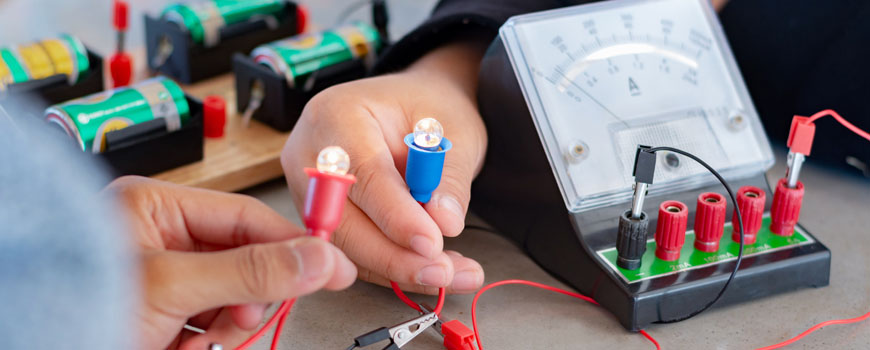
Physics - Cambridge - IGCSE
Subject Statistics
- Cambridge
- IGCSE
- 2023 Syllabus
- 2023 Core, 2023 Extended
- 3335 Questions
- 1154 Explanations
- 0625 & 0972
About Physics
Why Study IGCSE Physics?
Physics is the study of the fundamental principles that govern the universe, from the smallest particles to the largest galaxies. It is a core subject for students interested in engineering, space science, robotics, and technology-related careers. Understanding physics helps develop problem-solving abilities, mathematical reasoning, and analytical thinking, making it a valuable subject for academic and professional growth.
The Cambridge IGCSE Physics course is designed to provide students with a strong foundation in mechanics, waves, energy, electricity, and nuclear physics. The syllabus encourages students to develop a deep understanding of scientific concepts and their real-world applications. From understanding how forces and motion work to exploring the principles of electromagnetism, students gain practical knowledge that supports further studies in engineering, aviation, and applied sciences.
IGCSE Physics not only equips students with theoretical knowledge but also focuses on experimentation, scientific investigations, and data interpretation. By conducting experiments, analyzing results, and applying theoretical concepts to real-world problems, students develop the skills needed for higher-level studies and technical careers.
Global Recognition & Importance
Cambridge IGCSE Physics is widely taught in international schools across the UK, UAE, India, Pakistan, Singapore, and many other countries. It provides students with a globally recognized qualification that is essential for those planning to study A-Level Physics or pursue careers in engineering, computer science, space exploration, and advanced technology sectors.
Exam Format
The Cambridge IGCSE Physics assessment consists of theoretical and practical components, designed to evaluate students' conceptual understanding, problem-solving skills, and experimental techniques.
✅ Core Assessment (Grades C to G)
📌 Paper 1: Multiple-choice questions – 45 minutes, 40 marks.
📌 Paper 3: Theory – 1 hour 15 minutes, 80 marks. Compulsory short-answer and structured questions.
✅ Extended Assessment (Grades A* to G)
📌 Paper 2: Multiple-choice questions – 45 minutes, 40 marks. Covers both core and supplement topics.
📌 Paper 4: Theory – 1 hour 15 minutes, 80 marks. Structured and application-based questions.
✅ Practical Assessment (Grades A* to G)
Students can select one of the following:
📌 Paper 5: Practical Test – 1 hour 15 minutes, 40 marks. Requires students to conduct hands-on laboratory experiments.
📌 Paper 6: Alternative to Practical – 1 hour, 40 marks. Assesses experimental understanding without requiring physical experiments.
How A* Quiz Helps
A* Quiz is an excellent tool for mastering Paper 1 & Paper 2, providing extensive practice with multiple-choice questions (MCQs) to strengthen core concepts and test-taking skills. Additionally, by engaging in structured quiz practice, students build a solid understanding of key biological topics, which enhances their performance in Paper 3, Paper 4, and even the practical components by reinforcing subject knowledge and analytical thinking.